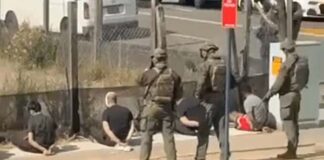ON MAY 4 the Department of Santa Cruz in Bolivia held an autonomy vote. Autonomy would give them more tax revenue powers and the right to create their own security forces. Santa Cruz holds the majority of the country’s natural resources and massive agri-business stands to lose much planned reforms.
The autonomy movement began in 2003, after powerful landowners and business leaders sensed their dwindling political power after the October Gas War and the fleeing of then President Gonzales de Lozada. Unsurprisingly, the racist ruling class “autonomistas” have the backing of the United States, which wants to put a brake on the progressive reforms of the government of Evo Morales.
Similar referendums were held on June 1 in the Departments of Pando and Beni. The National Electoral Court declared the referendums illegal. The MAS government called for people to abstain and refused to recognise the results. This sets the scene for a major political power struggle. A Recall Referendum for the President and all nine governors of Bolivia’s Departments will now be held on August 10.
The Santa Cruz bloc immediately declared victory, saying 85 per cent voted in favour of autonomy. The numbers show a different picture. When you add the 41.3 per cent who abstained to the 14 per cent who voted no and the 4 per cent of blank ballot papers submitted, those who voted yes are in a minority. In Pando, absenteeism almost reached 50 per cent, which would have made the referendum there invalid.
Some communities burned boxes that arrived already filled to the brim with pro-autonomy papers. There were also reports that “autonomistas” went to communities to “encourage” people to vote yes.
Meanwhile, in cities around the country there have been massive marches in favour of democracy and the “processo de cambio” (process of change). In Cochabamba, 500,000 people gathered declaring support for the government and the democratic institutions.
On May 25 the racism that underpins the autonomy movement was on gruesome display in Sucre, Bolivia’s judicial capital. President Evo Morales was due to go there to commemorate the 199th anniversary of Latin America’s first steps towards independence.
More than two dozen of the campesinos that went to support Morales were blocked from entering the city. They were then captured and beaten by armed civilians. After being stripped down to their underwear, they were forced to apologise for coming to support Morales.
However, the mass turn-outs in favour of democracy and against the “autonomistas” show that the social movements, who were responsible for the groundswell that ousted previous corrupt neo-liberal governments and got Morales elected in the first place, are still a force to be reckoned with.
By Paula PfoefferCochabamba, Bolivia





